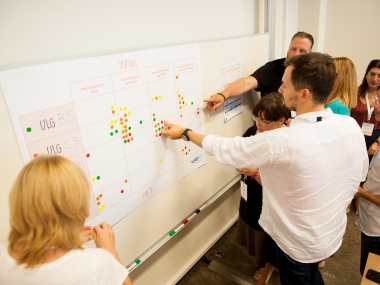
URBACT Local Groups (ULG) are a fundamental building block of the URBACT programme. Each URBACT partner is required to set up a Local Group gathering key local stakeholders in order to co-produce city strategies and action plans.
A Local Group, what for?
The integrated approach to sustainable urban development promoted by URBACT builds on the participation of key local stakeholders in policy-making and delivery. Developing partnerships involving local authorities (including different departements within the local administration), beneficiaries/ users, NGOs, public agencies, the private sector and the civil society (citizens and inhabitants) has proven to be a key component in the design and implementation of efficient urban policies.
Every city partner in an URBACT network is required to set up an URBACT Local Group (ULG) that brings together all relevant stakeholders having a stake in the policy challenge addressed by the city (e.g. youth unemployment, regeneration of deprived neighbourhood, energy-efficiency in housing, etc.).
The main objective of the ULG is to bring around the table the different interests at stakes and different perspectives to frame problems and agree policy priorities, and design concrete solutions so as to address these problems in the most efficient way. Within URBACT networks, partners' ULG are expected to co-produce city strategies, embedding the knowledge, experience, lessons drawn from the exchange taking place during the network's transnational seminars.
As a consequence, this cannot be a « one size fits all » framework. Depending on the issue they want to address, on the local context and previous experiences, each ULG will build on a different mix of local stakeholders (e.g. members of other departments, elected representatives, different tiers of government, beneficiaries, NGOs, private sectors, etc.).
By bringing together partners to collaborate on a specific issue and share experiences at transnational level, the ULG aims to enhance the impact of networking activities on local policies and practices. Eventually, it leads to rigorous and innovative results and contributes to strengthening the capacities of local stakeholders to develop efficient policies.
The URBACT Local Group Toolkit

The URBACT LSG Toolkit has been created to support partner cities with the challenging task of developing participatory action-planning and implementation. It provides guidelines and tools that have proved useful in bringing together city stakeholders, and facilitating collaboration in the analysis of urban challenges and the co-creation of solutions. It is intended to inspire and guide, not as a straight jacket.
Alongside the Summer Universities, the National Training Scheme and the Training for Elected Representatives, it is a key element in the programme's repertoire to support the URBACT community of cities in improving their policies.
The toolkit also provides some practical tools to support cities in setting up and running a ULG, and in producing an integrated local action plan.
Here below you can find a short presentation of the tools with links to the tools themselves. These are:
- Stakeholder analysis and Stakeholders Importance/ Influence matrix
- Self-assessment tool for Local Support Group
- Problem tree and Problem and solutions table
- Action table
- Self-assessment tool for Local Action Plan
Toolkit available in DE, EE, EL, EN, ES, FR, HU, IT, LT, LV, PO, PT, RO, NL, SE, SI
All other languages will be available shortly.
Stakeholder analysis and stakeholder importance/influence matrix
The stakeholder analysis table can be used to identify the various interests related to the chosen policy challenge, the motivations of the different stakeholders, as well as possible actions to address these various interests.
The Importance/ Influence matrix, on the other hand, helps in prioritizing stakeholders, as well as in thinking about the right approach to take with each of them.
Both tools are available here. (shortly in all languages)
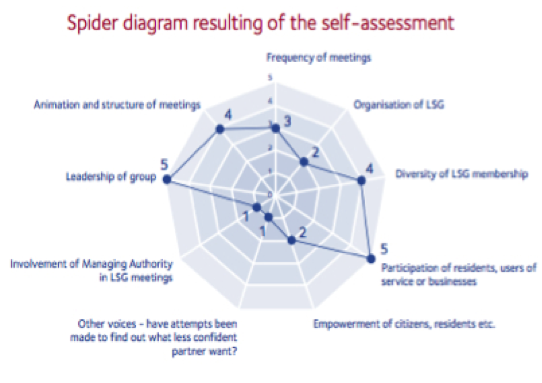
Specifically designed for the URBACT LSGs, this self-assessment tool allows the evaluation of the group's performance on a number of dimensions, such as its composition, activities of the group to foster the empowerment of citizens, etc.
Tool available here
Problem tree and solution table
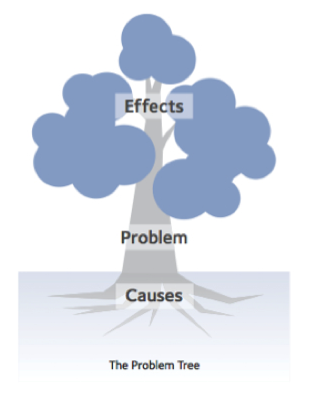
Problem analysis is a key step to ensure the Local Group properly defines the problem versus causes and effects. One well established technique for working with problems in a group setting is to make a « Problem tree ». This is a simple graphical representation of the problems, their causes and effects.
Once the tree has been filled in, you can use it to flip your problems into solutions. Another way to go through this process is to use a "Problems to Solutions table".
Problem tree available here. (shortly in all languages)
Problem and Solutions table available here. (shortly in all languages)
Action table
Expected results/change, objectives, actions, outputs and indicators are central elements of an action plan and agreeing on all of them is a crucial part of the action planning process.
Tool available here. (shortly in all languages)
Self-assessment for local action plan
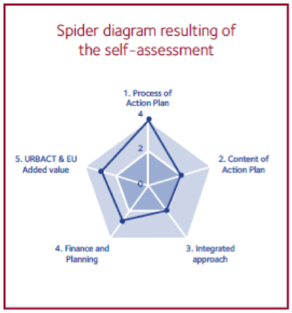
URBACT has developed a useful tool for ULGs to check their own progress with the Local Action Plan. Once a draft framework for the action plan is in place, it can be useful to check the content and ongoing production process. It will help to add useful elements to your plan, and think about any gaps.
Tool available here. (shortly in all languages)
Other capacity-building actions
The URBACT Summer Universities
URBACT has organised three Summer Universities for local stakeholders involved in URBACT Local Groups, in Krakow, August 2011, Dublin, August 2013 and Rotterdam, August 2016. These were dedicated to partner cities of ongoing networks, and conceived as a unique learning experience, combining training, practical exercises on virtual city case and all kinds of networking activities.
Each event brought together over 300 participants from all across Europe, urban practitioners, policy-makers, representatives of NGOs, civil society and the private sector for a full-immersion experience. They both aimed at equipping participants with tools and methods for participatory and integrated approach to urban action-planning: identifying relevant stakeholders, building a strong participatory process, strengthening your evidence base, involving unusual suspects and generating creative solutions for effective action plans. The next session will take place in 2020.
National training on participative action planning
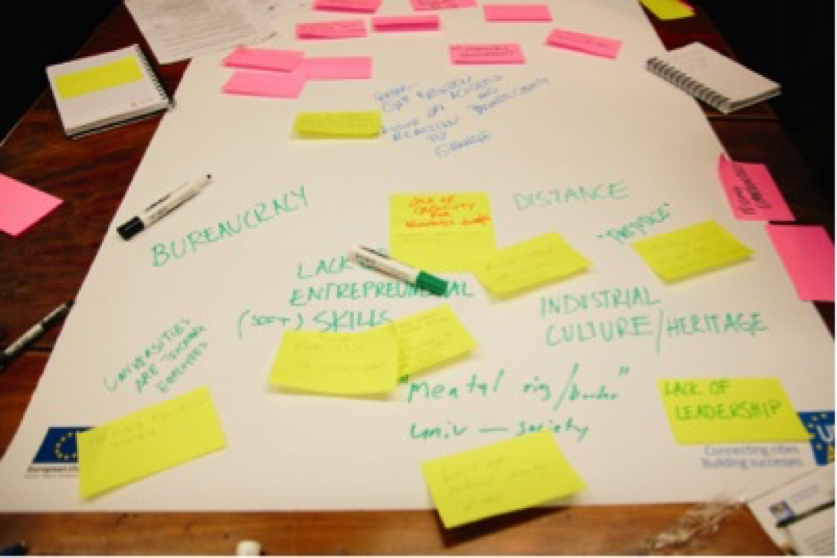
In 2013, URBACT launched another initiative to support its beneficiaries in delivering better results at local level. Partners of 15 URBACT projects created under the 3rd call for proposals benefited from a capacity-building scheme targeting their Local Group members. 2 rounds of national training seminars were organised, in national languages, in 15 countries (covering 24 Member States) in spring and autumn of 2013.
This National Training Scheme provided partners with tools and methods to enhance their integrated action-plans and with a platform to network with other URBACT partners and key players of urban policy at national level.
Through the URBACT Local Group and Integrated Action Plan dynamics, URBACT aims to maximize the impact of the transnational exchange and learning on local practices and policies. Enhancing the individual capacities gradually became part of the URBACT II approach.
If you want to know more:
- URBACT National Training on Participative Action Planning – URBACT website
Pilot training for elected representatives
With the active support of the European Commission, URBACT launched a pilot project for training elected representatives in integrated sustainable urban development.
This pilot training was opened to mayors, deputy mayors and councilors of the 200 cities that are partners in the 15 ongoing networks (2013 – 2015). 30 elected representatives from all across Europe were selected to go through the 3 training sessions organised in 2013. The sessions focused on (1) breaking silos and developing integrated and place-based solutions in cities, (2) participatory approach and stakeholder involvement and (3) how can cities tackle the challenges of climate change and assess their progress.
If you want to know more:
- Training for Elected Representatives – URBACT website
- Elected Representatives: A Vote of Confidence in URBACT Training – URBACT article
More stories from the cities
Chantal Olfers, Senior Policy Advisor in Rotterdam explains her experience of URBACT Local Group in Rotterdam
David Lawless, Dun Laoghaire, Ireland, SURE URBACT Project, explains his experience of URBACT Local Group.
